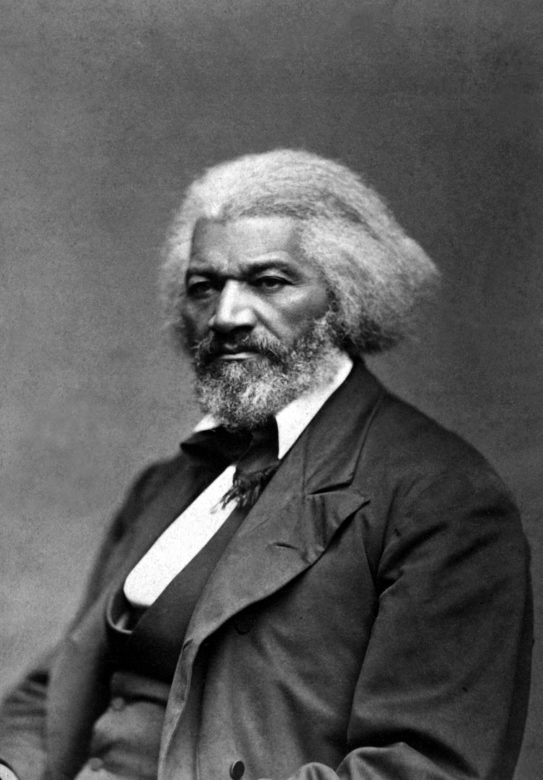A Portrait of Spanish Conquistador Hernán Cortés: A Gift to the First Lady
Late in James K. Polk’s presidency, his wife Sarah Childress Polk received an unusual gift that implicitly equated…
On May 1, 1845, about three months into James K. Polk’s single term as President of the United States, an abolitionist named Frederick Douglass added fuel to the debate that Polk had long tried to suppress.
Douglass published his now-famous autobiography, Narrative of the Life of Frederick Douglass, an account of his time enslaved in Maryland. Beginning with his childhood, in which Douglass remembers little of his mother but several instances of witnessing violence against slaves, the author progresses through his adult life learning how to read, and eventually the trials and struggles of his self-emancipation.
The book fanned the flames of the growing abolitionist movement. By 1860, almost 30,000 copies had been sold. Douglass became one of the most influential voices of the abolitionist movement. In addition to his international speaking schedule, he published the abolitionist newspaper The North Star and was politically active throughout the Civil War and during the Reconstruction period.

The remarkable life and career of Frederick Douglass presents in many ways a counterpoint to the goals and philosophies of James K. Polk and his political supporters. Abolition was Doulgass’ chief cause, and the issue that propelled him into the national spotlight. His work, however, intersected with several other progressive causes gaining steam during Polk’s presidency. Douglass attended the Seneca Falls Convention and signed its Declaration of Sentiments, and throughout his long career advocated for the rights of women. After the Civil War, he was even (unknowingly) presented as a candidate for Vice President, nominated on the 1872 ticket with Victoria Woodhull, who is considered the first woman to run for President of the United States.
Frederick Douglass also opposed one of James K. Polk’s greatest accomplishments: the war with Mexico. Douglass published a condemning critique of the war in his North Star newspaper:
The present unholy war is not the accident of a day, but the result of long years of national transgression. Pride and ambition, when once in the full possession of a nation’s heart, and roused to action, cannot be easily expelled, by any means this side of national ruin. We have given ourselves up to the blind spirit of mad ambition. The war will be carried on. The bones of many more American citizens must be added to the thousands now bleaching on the plains of Mexico. The slaughter of Mexicans must be continued and the government of that country annihilated, before the wicked war can cease... Slavery, treachery and mad ambition, are at the head of the government, in the person of James K. Polk; and the means of checking them are naught.
Frederick Douglass, North Star newspaper, February 1848
Frederick Douglass was far from the only voice opposing America’s military action in Mexico during the course of the war, but his voice became one of the most powerful. Douglass condemned not just American foreign policy but President James K. Polk personally for what he viewed as the “unholy” and “wicked” conflict. Although no record of Polk responding to Frederick Doulgass’ criticism survives, Douglass presented a consistent and powerful counter message to Polk’s agenda throughout his term as President. Studying Douglass alongside James K. Polk is also an important reminder that in the 1840s as today Americans were far from united on matters of foreign and domestic policy.
Candice Roland Candeto is the Curator at the President James K. Polk Home & Museum.
Late in James K. Polk’s presidency, his wife Sarah Childress Polk received an unusual gift that implicitly equated…
President James K. Polk dies June 15, 1849 After leaving Washington at the end of his term. James…
Be the first to hear about new exhibitions, community events, and learning opportunities at the President James K. Polk Home and Museum.
© 2026 President James K. Polk Home and Museum
